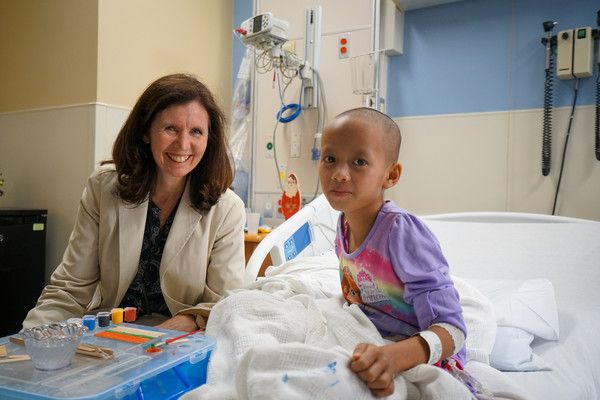Increased Vitamin D Levels May Improve Long-Term Health for Pediatric Cancer Survivors
Activated by sunlight and present in some foods and supplements, vitamin D plays an important role in disease prevention and overall health. Adequate intake regulates calcium and phosphorus absorption, maintains healthy bones and teeth, and protects against multiple diseases and conditions such as cancer. But a large proportion of the U.S. population is vitamin D deficient. Among the groups especially prone to shortages are people living in places with less sunlight, such as the Northeastern U.S., and adult survivors of childhood cancer.
Because these survivors already have an increased risk of developing secondary cancers and chronic health conditions, monitoring vitamin D levels is a crucial step in sustaining long-term health. Furthermore, sufficient vitamin D levels during cancer treatment are linked to increased survival.
Here are a few ways to ensure adequate intake:
Check Your Vitamin D Levels
The only way to know if you’re getting a sufficient amount of vitamin D is through a 25(OH)D blood test. A vitamin D level of 20 - 40 nanograms per milliliter (ng/ml) or higher is sufficient.
Boost your Vitamin D Intake
- Spend 15 minutes in the sun midday (If your sun exposure exceeds 15 minutes, please apply sunscreen to diminish the risk of skin cancer.)
- Take a daily vitamin D supplement
- Eat fatty fish like salmon, swordfish or trout
- Consume 1 tablespoon of cod liver oil daily
- Eat fortified cereal and milk for breakfast
Symptoms of Vitamin D Deficiency
- Bone pain
- Muscle weakness
- Increased blood pressure
- Depression
The long-term effects of therapy and quality of life among adult survivors of childhood cancers have become an area of intense investigation. My hope is that future studies will help solidify vitamin D’s role in prevention and health maintenance and determine the extent to which vitamin D can improve outcomes.
Learn more in our recent study published in the International Journal of Cancer Therapy and Oncology.


